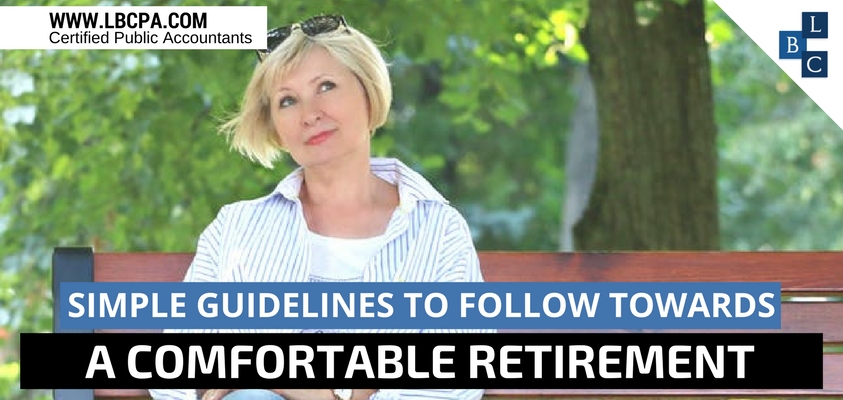LBCPA News 
Click here to go back
Simple guidelines to follow towards a comfortable retirement

Someone starting their savings in their early 20s can save 10% of their income and have a sufficient nest egg, while someone starting in their 40s may have to bump that number up more towards 20%. This is all dependent on the time of your life that you choose to start, the size of your current nest egg, and the amount of money that you will need to retire comfortably.
It is always a good idea to contribute as much as possible to retirement plans, to take advantage of tax deferral and employer matches.
Generally people need around 80% of their pre-retirement income after they have retired for the first few years and then learn how to live on less. This will greatly depend on the expenses that you plan on having:
Is the mortgage already paid off?
Do you have car payments?
Are you sending your children through school?
Another strategy worth following is to always have an emergency fund of at least 6 months of expenses. Considering your situation and the situations of the people that you depend on or depend on you, you can adjust the number of months accordingly, but 6 is a good ballpark number. This will also depend on how many bills you need to pay.
If you have any questions regarding accounting, domestic taxation, international taxation, IRS representation, U.S. tax implications of Real Estate transactions or financial statements, please give us a call at 305-274-5811.
Source: Thomson Reuters






